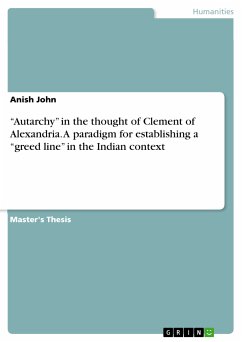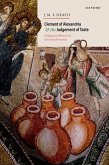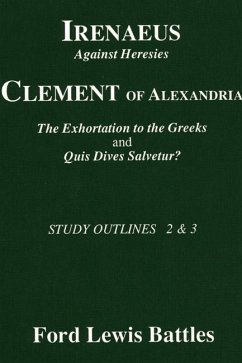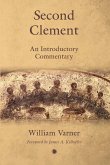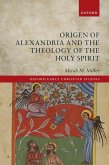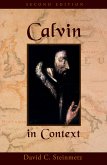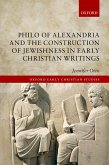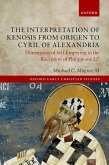Master's Thesis from the year 2016 in the subject Theology - Historic Theology, Ecclesiastical History, , language: English, abstract: This study is an exploration into the concept of Autarchy in Clement of Alexandria towards establishing a greed line for Indian Context. The economic and financial breakdowns, bankrupt nations and alarming ecological degradation have all constantly raised concerns for linking Poverty, Wealth, Ecology and its legitimacy. Rising Governmental policies and checks against unethical financial gains, unaccounted income by individuals or corporate all directs towards a more subtle, ethical and social change. Greed and legitimate use of wealth seemingly a spiritual and moral imperative, now seeks discussion even for structural changes in national or transnational policies. The religious fabric of Christianity owes an unprecedented responsible attitude to the concerns of Greed, poverty and wealth. This concern is a responsibility of diakonia not of any exclusivist superior claims in a Pluralistic context. World Council of Churches has extended discussions focusing on poverty, wealth and ecology since its 8th Assembly at Harare, 1998 directly with AGAPE (Alternative Globalization Addressing People and Earth) process. Also, the WCC's motto of preferential option for people in poverty remains relevant today. However, the Early Christian wealth of Social sensitivity and Philosophical tradition of Patristics remain unexplored in contemporary discussions. Christian Church possesses in its literature an abundant and incomparable treasure. But it is an inheritance that must be reclaimed by each generation. The concept of "Autarchy" (Autarkia) in Clement of Alexandria catalyzes thought towards a new ethical and moral paradigm to counter greed. In the Indian context of widespread poverty, economic disparity and unrestrained exploitation, Autarchy as in Clement would enable a culture of enough and help constructing a Greed line.
Dieser Download kann aus rechtlichen Gründen nur mit Rechnungsadresse in A, B, BG, CY, CZ, D, DK, EW, E, FIN, F, GR, HR, H, IRL, I, LT, L, LR, M, NL, PL, P, R, S, SLO, SK ausgeliefert werden.

